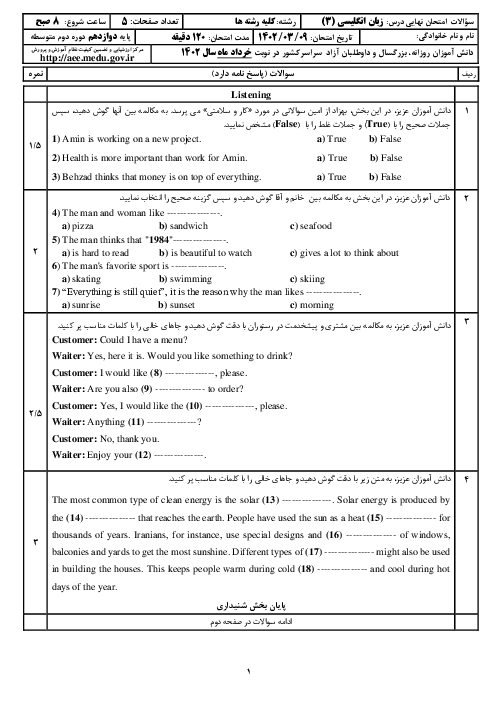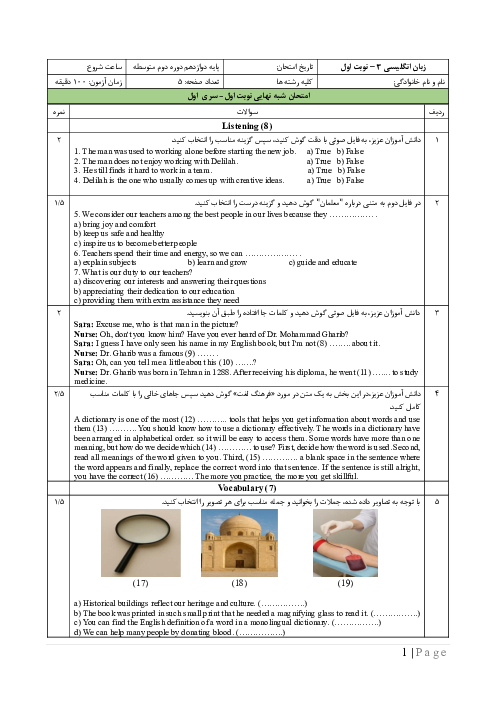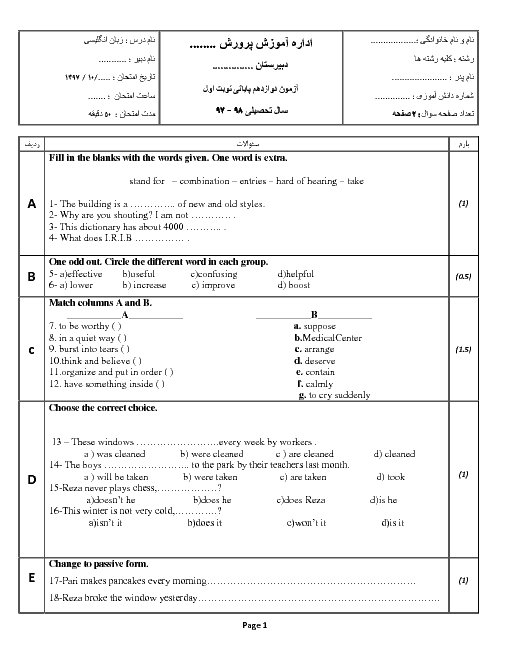Reading 2
Researchers from the Women's Health Aging Project in Australia observed the cognitive function of over 180 women who cared for grandchildren. The results showed that postmenopausal, elderly, women who spend one day a week caring for their grandchildren may have a lower risk of developing Alzheimer's and other cognitive disor ders. However, those that spend five days a week or more caring for little ones may have a higher risk of developing neurodegenerative disorders.
This is the first study to examine the role of grandparenting on cognition. While the reason for the correlation is not clear, it is thought that regular social interaction can have a positive effect on the mental health of seniors and lower their risk for Alzheimer's. Caring for grandchildren can help to prevent the social isolation that can cause depression, and even an earlier death.
In addition to preventing Alzheimer's and avoiding social isolation, other research suggests that a strong grandchild and grandparent bond has anti-depressive benefits for both seniors and children. A study from the Institute on Aging at Boston College observed the habits of 376 grandparents and 340 children for 19 years. They found that the closer the relationship between the two, the less likely either were to develop depression and that grandparents who both gave and received support had the fewest symptoms of depression.
According to the passage, the author claims that .........
1 )
grandparents who take of their grandchildren weekly are paid by the government to make living
2 )
grandmother who babysit their grandchildren may get some problems in brain function and memory
babysitting grandchildren increase grandmothers understanding and reduce their getting some memory diseases once a week
4 )
role of grandchildren in taking care of their grandmothers can help them reduce their brain function
پاسخ تشریحی :
تحلیل ویدئویی تست
منتظریم اولین نفر تحلیلش کنه!











